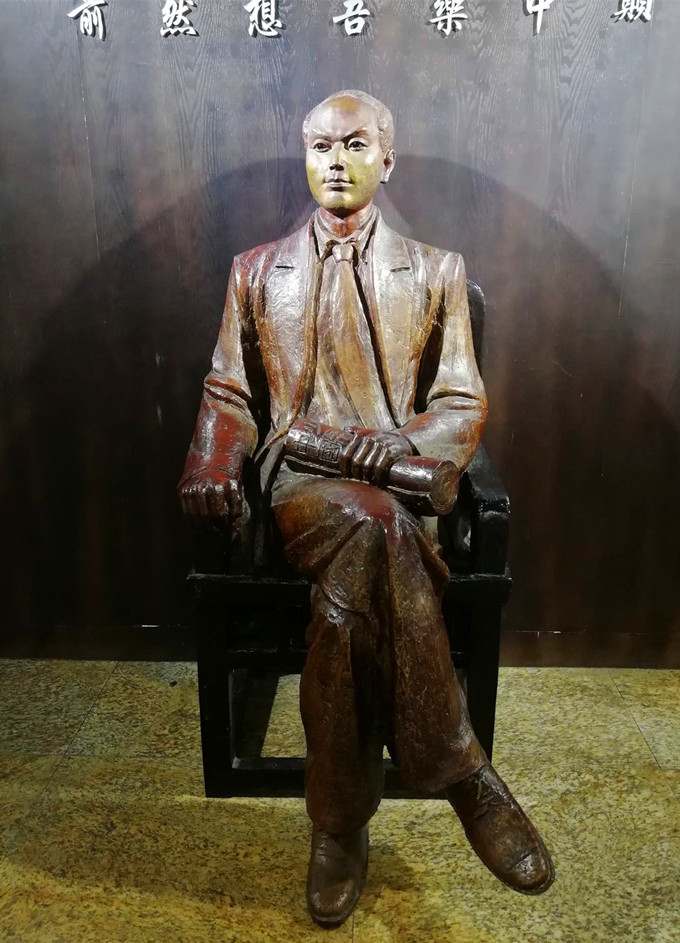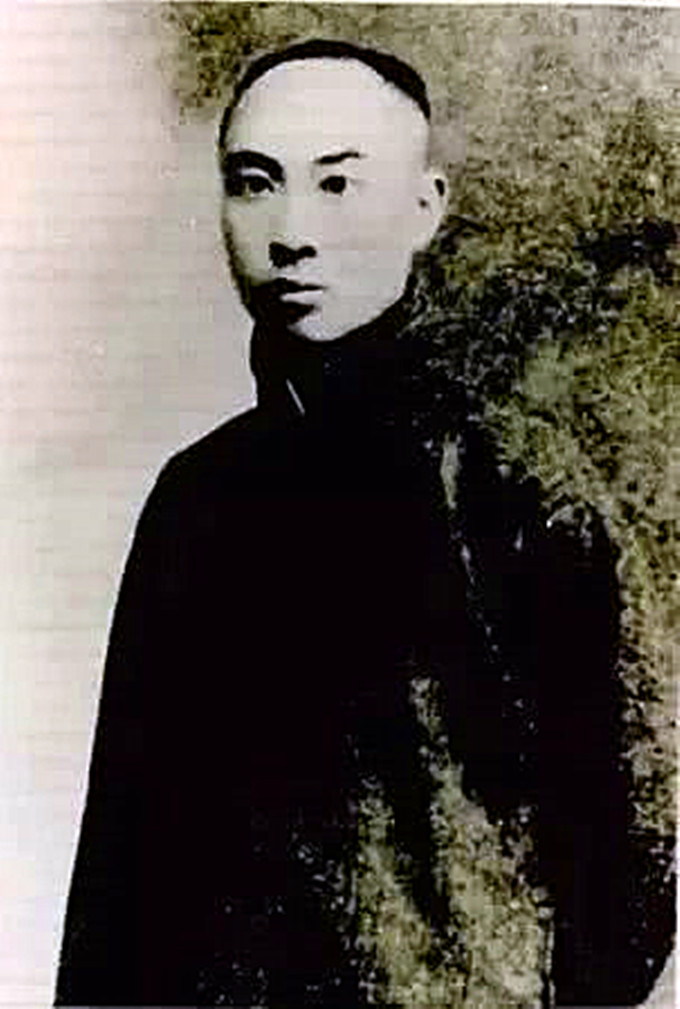|
||||||||||||||||||||||||||
 |
 |
|||||||||||||||||||||||||
|
|

|
||||||||||||||||||||||||||||
|
|
|
|||||||||||||||||||||||||||
| 王光祈 (1892—1936) | ||||||||||||||||||||||||||||
|
|
||||||||||||||||||||||||||||
| 千古绝响——广陵散 吴文光老先生的演奏,神情毕现,闻之感慨,应邀搬运 | ||||||||||||||||||||||||||||
|
|
||||||||||||||||||||||||||||
|
音乐历史上的今 1936年1月12日,中国第一个音乐博士、伟大的音乐学家王光祈逝世。 一个中国人,毫无凭藉地远在异乡,在“而立”之年,开始从头学习音乐,以实现自己“音乐救国”的理想,这是何等的决心和毅力!他,就是中国第一个获得音乐学博士学位的学者——王光祈先生。 自一九二二年踏上学习音乐的路程以后,他发奋苦读,学习了钢琴、小提琴和各科音乐知识;为了学习和著译,他还攻下了德、英、法、拉丁四门外语,除音乐的著译外,尚有近代中国外交史料等数十种成果。 王光祈在德国柏林大学研究的课题——民族音乐学与音乐社会学,在当时德国也还是很少有人间津的新兴学科。他的《东方民族之音乐》、《中国音乐史》,成为这一领域具有奠基意义的理论著作。 在生活极其清苦的条件下,他先后编成《音乐丛刊》十二种,撰写音乐论著十九种。一九三六年一月十二日,终因积劳成疾以四十四岁的壮年客死于柏林国立图书馆。他曾说:“吾将登昆仑之巅,吹黄钟之律,使中国入固有之音乐血液,重新沸腾;吾将使吾日夜梦想之‘少年中国’,灿然涌现于吾人之前。”他实践着自己的理想。 |
|
|||||||||||||||||||||||||||
|
Today in music history Wang guangqi, China's first doctor of music, died on January 12 The ideal practitioner A Chinese, without a reason to be far away in a foreign land, in the year of "standing", began to learn music from the beginning, in order to realize their "music to save the country" ideal, this is what kind of determination and perseverance!He was the first Chinese scholar to receive a doctor's degree in musicology -- Mr. Wang guangqi. Since 1922, when he set foot on the road to study music, he worked hard to learn the piano, violin and various music knowledge;In order to study and write translations, he also mastered four foreign languages: German, English, French and Latin. In addition to his music, he also wrote and translated dozens of foreign languages, including modern Chinese diplomatic historical materials. Wang guangqi studied ethnomusicology and sociology of music in the university of Berlin, Germany.His "music of the Oriental nation" and "history of Chinese music" have become the theoretical works with foundation significance in this field. Under the condition of extreme poverty, he compiled twelve kinds of music series and nineteen kinds of music treatises.On January 12, 1936, he died in the national library of Berlin at the age of 44 due to illness caused by overwork.He once said, "I will ascend to the top of kunlun and blow the law of the yellow bell, so that China will enter the blood of the inherent music and re-boil;I will make the 'young China' that I have dreamed of day and night emerge before us."He lived up to his ideals. |
||||||||||||||||||||||||||||
 |
||||||||||||||||||||||||||||
 |
||||||||||||||||||||||||||||
| 王光祈纪念馆位于四川成都市温江区人民公园内,于1987年10月建成。 | ||||||||||||||||||||||||||||
| 王光祈 (1892—1936) ,音乐学家和社会活动家,字润玙,笔名若愚,属龙,四川省成都市温江区人。1920年赴德国留学,研习政治经济学,1923年转学音乐。1927年入柏林大学专攻音乐学,1934年以《论中国古典歌剧》一文获波恩大学博士学位。他的研究,开东方民族音乐之先河。代表作《东方民族之音乐》、《欧洲音乐进化论》、《论中国古典歌剧》等。 | ||||||||||||||||||||||||||||
|
“五四”运动时期,王光祈是著名的社会活动家。1918年,他曾在陈独秀和李大钊创办的《每周评论》和成都《四川群报》上发表若干篇文章与通讯,抨击第一次世界大战和“巴黎和会”后日本侵略中国山东的罪行。同年,他与《京华日报》编辑周太玄一同提议建立“少年中国学会”,得到了李大钊的热情支持。王光祈负责筹备期间的主要事务。1919年“五四”运动期间,他向李劼人主编的《川报》发送50余篇通讯,为四川的民主思想的增长和成都的国学生运动的开展起了巨大推动作用。李劼人曾在《追忆王光祈》一文中说:“北京(五四)运动之所以及时传到成都,青年们得以及时看到光明,就不能不归功于王光祈了。”7月1日,“少年中国学会”在北京成立,王光祈主持了会议。这个学会的宗旨是:“以振作少年精神,研究真实学术,发展社会事业,转移末世风气。”后来,根据王光祈、李大钊等人提议改为:“本学会宗旨,本科学的精神,为社会活动,以创造少年中国。”学会的信条是:“一、奋斗,二、实践,三、坚忍,四、俭朴。”王光祈曾介绍毛泽东、赵世炎、张闻天、恽代英等人加入学会。“少年中国学会”创刊《少年中国》月刊,李大钊编辑主任,康白情为副主任,王光祈任会计并负责“学会消息”栏。北京为学会总会,在成都、南京两地设立分会。成都分会创办《星期日》周报,南京分会负责编辑《少年世界》。学会成立一周年时,有会员75人,《少年中国》和《少年世界》两种月刊,每期各都发行5000册,由上海亚东图书馆印制和发行
。 20年4月以前,王光祈是“少年中国学会”的发起人和实际主要负责者。王光祈、字润玛,笔名若愚,1892年出生于四川温江县鱼凫镇小河村。他未出生前数月父亲病故,家道衰落,靠母亲做手工和出租一“锅厂”地微薄收入过活。在成都读中学时,与周无(太玄)、魏嗣銮(时珍)、郭沫若、曾琦、蒙文通等为同窗,经常讨论时事政治。他中学毕业后,失学也失业,曾回老家农村过了一段十分艰苦的生活,后来奋然离家出川,去上海、青岛、北京,游学和找工作。1914年为清史馆书记员,同年考入中国大学攻读法律。王光祈的青少年时代穷困坎坷,深刻认识到旧社会的丑恶和腐朽:“一切政党皆不足有为,过去人物又使人绝望”,决心“联合同辈,杀出一条道路,把个古老腐朽,呻吟垂绝的被压迫被剥削的国家改变为一个青春年少独立富强的国家。”如何改变?王光祈在政治思想上是模糊的。他中学时代,喜欢田园诗和陶渊明的《桃花源记》,后来至上海、北京,在新思潮中他喜欢克鲁泡特金、欧文、圣西门、傅立叶的著作,崇拜空想社会主义。为了与旧社会“隔绝”,创造大同世界,他发起组织了“少年中国学会” |
||||||||||||||||||||||||||||
| Wang Guang qi (1892-1936), music, and social activist, embellish of word, pen name if the fool, is a dragon, salween district, chengdu city, sichuan province.He studied political economy in Germany in 1920 and transferred to music in 1923.In 1927, he entered the university of Berlin and majored in musicology. In 1934, he received his doctor's degree from the university of Bonn with his essay on Chinese classical opera.His research was the first of its kind in eastern folk music.His representative works include music of Oriental nations, evolution of European music, on Chinese classical opera, etc. | ||||||||||||||||||||||||||||
|
During the May 4th movement, wang guangqi was a famous social activist.In 1918, he published several articles and correspondences in the weekly review and chengdu sichuan qun daily founded by Chen duxiu and li dazhao, criticizing the crimes of Japanese aggression in shandong after the first world war and the Paris peace conference.In the same year, together with zhou taixuan, editor of the Beijing daily, he proposed the establishment of the youth China society, which was warmly supported by li dazhao.Wang guangqi is responsible for the main affairs during the preparatory period.In 1919, during the May 4th movement, he sent more than 50 articles to the newspaper sichuan daily edited by li jieren, which greatly promoted the growth of democracy in sichuan and the development of the national student movement in chengdu.Li jieren wrote in remembering wang guangqi: "it is impossible not to credit wang guangqi for the timely spread of the Beijing movement to chengdu, so that the young people could see the light in time."On July 1, the youth China association was established in Beijing. Wang guangqi chaired the meeting.The purpose of this society is: "to boost the spirit of youth, to study the real academic, to develop social undertakings, to transfer the eschatological atmosphere."Later, according to wang guangqi, li dazhao and others proposed to be changed to: "the purpose of the society, the spirit of undergraduate learning, for social activities to create juvenile China."The credo of the society is: "one, struggle, two, practice, three, perseverance, four, simplicity."Wang guangqi had introduced MAO zedong, zhao shiyan, zhang wuntian, yun daiying and others to join the association.Li dazhao is the editorial director, kang baiqing is the deputy director, and wang guangqi is the accountant and in charge of the news column.Beijing is the general association of the society, in chengdu, nanjing and set up branches.Chengdu branch founded Sunday weekly, while nanjing branch was responsible for editing boyhood world.On its first anniversary, the society had 75 members. The two monthly magazines, "youth China" and "youth world", published 5,000 copies each, which were printed and distributed by Shanghai yadong library. 20 years ago, April, wang guangqi was the initiator and the main person in charge of the youth China society.Wang guangqi and zi runma, with the pen name ruoyu, were born in 1892 in xiaohe village, yufu town, wenjiang county, sichuan province.His father died a few months before he was born, and the family was on the wane, living on his mother's meager income from manual labor and renting out a "pot factory".When I was in middle school in chengdu, I often discussed current affairs and politics with zhou wu (too xuan), wei sichuang (shi zhen), guo moruo, zeng qi, meng wentong and so on.After he graduated from middle school, he was out of school and unemployed. He went back to his hometown and lived a hard life in the countryside.In 1914, he became a clerk of the qing shi guan. In the same year, he was admitted to a Chinese university to study law.Wang Guang qi youth need bumpy, deep understanding to the evils of the old society and decay: "the lack of all political parties and promising characters and make people desperate", determined to "joint peers, fight a road, the old corrupt, moaning hanging off the oppressed exploitation state changes for a young independent wealthy nation."How?Wang guangqi is vague in political thought.When he was in middle school, he liked idyllic poems and tao yuanming's the land of peach blossoms. Later, he went to Shanghai and Beijing. Among the new thoughts, he liked the works of cropotkin, Owen, saint-simon and Fourier, and worshipped utopian socialism.In order to "isolate" from the old society and create a world of great harmony, he initiated and organized the youth China society. |
||||||||||||||||||||||||||||
青春闪耀时①丨王光祈:最先把五四运动消息传回四川 |
||||||||||||||||||||||||||||
| 更多王光祈链接 | ||||||||||||||||||||||||||||
|
|
||||||||||||||||||||||||||||
| 未得原作者编者授权严禁转载www.mt77.com任何内容 | ||||||||||||||||||||||||||||
|
|
|
||||||
|
copyright © 2003-2005 xilu.com all rights reserved. |
||||||
|
|
||||||











